- Home
- Elif Shafak
10 Minutes 38 Seconds in this Strange World Page 2
10 Minutes 38 Seconds in this Strange World Read online
Page 2
The first memory that came to her mind was about salt – the feel of it on her skin and the taste of it on her tongue.
She saw herself as a baby – naked, slick and red. Only a few seconds earlier she had left her mother’s womb and slid through a wet, slippery passage, gripped by a fear wholly new to her, and here she was now in a room full of sounds and colours and things unknown. Sunlight through the stained-glass windows dappled the quilt on the bed and reflected off the water in a porcelain basin, despite it being a chilly day in January. Into that same water an elderly woman dressed in shades of autumn leaves – the midwife – dipped a towel and wrung it out, blood trickling down her forearm.
‘Mashallah, mashallah. It’s a girl.’
The midwife took a piece of flint, which she had tucked away in her bra, and cut the umbilical cord. She never used a knife or a pair of scissors for this purpose, finding their cold efficiency unsuitable to the messy task of welcoming a baby into this world. The old woman was widely respected in the neighbourhood, and considered, for all her eccentricities and reclusiveness, to be one of the uncanny ones – those who had two sides to their personality, one earthly, one unearthly, and who, like a coin tossed into the air, could at any time reveal either face.
‘A girl,’ echoed the young mother lying in the wrought-iron four-poster bed, her honey-brown hair matted with sweat, her mouth dry as sand.
She had been worried that this might be so. Earlier in the month she had taken a walk in the garden looking for spiderwebs in the branches overhead, and, when she had found one, she had gently pushed her finger through it. For several days afterwards she had checked the site. If the spider had repaired the hole it would mean that the baby was a boy. But the web had remained torn.
The young woman’s name was Binnaz – ‘One Thousand Blandishments’. She was nineteen years of age, though this year she felt much older. She had full, generous lips, a dainty, upturned nose that was considered a rarity in this part of the country, a long face with a pointed chin, and large, dark eyes speckled with blue flecks like a starling’s eggs. She had always been slender and of delicate build but now looked even more so in her fawn-coloured linen nightgown. There were a few faint smallpox scars on her cheeks; her mother had once said they were a sign that she had been caressed by moonlight in her sleep. She missed her mother and her father and her nine siblings, all of whom lived in a village several hours away. Her family were very poor – a fact she had often been reminded of ever since she had entered this house as a new bride:
Be thankful. When you came here, you had nothing.
She still had nothing, Binnaz often thought; all her possessions were as ephemeral and rootless as dandelion seeds. One stiff breeze, one torrential downpour, and they would be gone, just like that. It weighed heavily on her mind that she could be thrown out of this house at any time, and if that happened where would she go? Her father would never agree to take her back, not with so many mouths to feed. She would have to marry again – but there was no guarantee that her next marriage would be any happier or a new husband more to her liking, and who would want her anyway, a divorcee, a used woman? Burdened with these suspicions, she moved around the house, around her bedroom, around her own head, like an uninvited guest. That is, until now. Everything would be different with the birth of this baby, she assured herself. She would no longer feel ill at ease, no longer insecure.
Almost against her will, Binnaz glanced towards the doorway. There, with one hand on her hip, another on the door handle – as if debating whether to stay or leave – stood a sturdy-looking, square-jawed woman. Although she was in her early forties, the age spots on her hands and the creases around her blade-thin mouth made her appear older. Across her forehead there were deep lines, uneven and magnified, like a ploughed field. Her wrinkles came mostly from frowning and smoking. All day long she puffed away on tobacco smuggled in from Iran and sipped tea smuggled in from Syria. Her brick-red hair – thanks to generous applications of Egyptian henna – was parted in the middle and formed into a perfect plait that almost reached her waist. Her hazel eyes she had carefully lined with the darkest kohl. She was Binnaz’s husband’s other wife, the first one – Suzan.
For an instant, the two women locked gazes. The air around them felt thick and slightly yeasty, like rising dough. They had been sharing the same room for more than twelve hours and yet now they were thrust into separate worlds. They both knew that with the birth of this child their positions in the family would shift forever. The second wife, despite her youth and recent arrival, would be promoted to the top.
Suzan averted her eyes, but not for long. When she looked back, there was a hardness in her face that hadn’t been there before. She nodded towards the baby. ‘Why doesn’t she make a sound?’
Binnaz turned ashen. ‘Yes. Is there something wrong?’
‘Nothing’s wrong,’ said the midwife, giving Suzan a cold glare. ‘We just have to wait.’
The midwife rinsed the baby with holy water from the Zamzam well – courtesy of a pilgrim who had recently returned from the Hajj. The blood, the mucus, the vernix were all wiped away. The newborn squirmed uncomfortably and kept on squirming even after the washing, as though fighting with herself – all eight pounds three ounces of her.
‘Can I hold her?’ asked Binnaz, twirling her hair between her fingertips – an anxious habit she had picked up over the past year. ‘She … she’s not crying.’
‘Oh, she will cry, this girl,’ said the midwife in a decisive tone, and instantly bit her tongue, the statement echoing like a dark omen. Quickly, she spat on the floor three times and stepped on her left foot with her right one. That would prevent the premonition – if that’s what it was – from travelling far.
An awkward silence ensued as everyone in the room – the first wife, the second wife, the midwife and two neighbours – stared at the baby with expectant eyes.
‘What is it? Tell me the truth,’ said Binnaz to no one in particular, her voice thinner than air.
Having had six miscarriages in only a few years, each more devastating than the last and harder to forget, she had been extremely careful throughout this pregnancy. She had not touched a single peach so the baby wouldn’t be covered in fuzz; she had not used any spices or herbs in her cooking so the baby wouldn’t have freckles or moles; she had not smelled roses so the baby wouldn’t have port-wine birthmarks. Not even once had she cut her hair lest their luck also be cut short. She had refrained from hammering nails into the wall in case she mistakenly hit a sleeping ghoul on the head. After dark, knowing too well that the djinn held their weddings around toilets, she had stayed in her room, making do with a chamber pot. Rabbits, rats, cats, vultures, porcupines, stray dogs – she had managed to avoid looking at them all. Even when a roving musician had appeared on their street with a dancing bear in tow, and all the locals had flocked outside to watch the spectacle, she had refused to join them, fearing her baby would emerge covered in hair. And whenever she had run into a beggar or a leper, or seen a hearse, she had turned around and scurried off in the opposite direction. Every morning she had eaten a whole quince to give the baby dimples, and every night she had slept with a knife under her pillow to ward off evil spirits. And secretly, after every sunset, she had collected hairs from Suzan’s hairbrush and burned them in the fireplace so as to reduce the power of her husband’s first wife.
As soon as the birth pangs had started, Binnaz had bitten into a red apple, sweet and sun-softened. It now stood on the table by her bed, slowly browning. This same apple would later be sliced into several pieces and given to women in the neighbourhood who could not get pregnant, so they too might one day bear a child. She had also sipped pomegranate sherbet that had been poured into her husband’s right shoe, scattered fennel seeds in four corners of the room and jumped over a broom placed on the floor, just by the door – a frontier to keep Sheitan away. As the cramps intensified, one by one, all the caged animals in the house were released to facilitate the labour.
The canaries, the finches … The last to be freed was the betta fish in the glass bowl, proud and lonely. Now it must be swimming in a creek not far away, its long, flowing fins as blue as a fine sapphire. If the little fish reached the soda lake, for which this eastern Anatolian town was famous, it would not have much chance of survival in the salty, carbonated waters. But if it travelled the opposite way, it could reach the Great Zab, and, somewhere further down the journey, it might even join the Tigris, that legendary river issuing out of the Garden of Eden.
All of this for the baby to arrive safe and healthy.
‘I want to see her. Can you bring me my daughter?’
No sooner had Binnaz asked this than a movement caught her attention. Quiet as a passing thought, Suzan had opened the door and slipped outside – no doubt to give the news to her husband – their husband. Binnaz’s whole frame went rigid.
Haroun was a man of scintillating opposites. Remarkably generous and charitable one day, self-absorbed and distracted to the point of callousness the next. The oldest of three, he had raised his two siblings on his own after their parents had died in a car accident that had destroyed their world. The tragedy had shaped his personality, making him overprotective of his family and distrustful of outsiders. At times he recognized that something was broken inside him and he dearly wished he could mend it, but these thoughts never led him anywhere. He was fond of alcohol and fearful of religion in equal degree. Knocking back yet another glass of raqi, he would make hefty promises to his drinking buddies, and afterwards, when he sobered up, heavy with guilt, he would make even heftier promises to Allah. While his mouth may have been hard for him to control, his body proved a greater challenge still. Every time Binnaz had got pregnant, his belly, too, had swollen in tandem with hers, not much, but enough to make the neighbours snigger behind his back.
‘The man is expecting again!’ they said, rolling their eyes. ‘Too bad he can’t give birth himself.’
Haroun wanted a son more than anything in the world. Not just one. He told whoever cared to listen that he was going to have four sons, whom he was going to name Tarkan, Tolga, Tufan and Tarik.fn1 His long years of marriage to Suzan had yielded no offspring. The elders in the family had then found Binnaz – a girl of barely sixteen. After weeks of negotiations between the families, Haroun and Binnaz had married in a religious ceremony. It was unofficial, and if anything were to go wrong in the future it would not be recognized by the secular courts, but that was a detail no one had cared to mention. The two of them had sat on the floor, in front of the witnesses, opposite the cross-eyed imam whose voice became more gravelly as he switched from Turkish to Arabic. Binnaz had kept her gaze on the carpet throughout, although she could not help stealing glances at the imam’s feet. His socks, pale brown like baked mud, were old and worn. Every time he shifted, one of his big toes threatened to push through the threadbare wool, looking for an escape.
Soon after the wedding Binnaz had got pregnant, but it had ended in a miscarriage that almost killed her. Late-night panic, hot shards of pain, a cold hand gripping her groin, the smell of blood, the need to hold on to something, as if she were falling, falling. It had been the same with each subsequent pregnancy, only worse. She could not tell anyone, but it seemed to her that with each baby lost, another part of the rope bridge linking her to the world at large had snapped and fallen away, until only the flimsiest thread kept her connected to that world, kept her sane.
After three years of waiting, the family elders had once again started pressuring Haroun. They reminded him that the Qur’an allows a man to have up to four wives, so long as he was fair to them, and they had no doubt that Haroun would treat all his wives equally. They urged him to look for a peasant woman this time, even a widow with children of her own. It, too, wouldn’t be official but it could easily be done through another religious ceremony, just as quiet and quick as the previous one. Alternatively, he could divorce this useless young wife and then get remarried. So far, Haroun had turned down both suggestions. It was hard enough providing for two wives, he said; a third would ruin him financially, and he had no intention of leaving either Suzan or Binnaz, both of whom he had grown fond of, though for different reasons.
Now, as she propped herself up on the pillows, Binnaz tried to imagine what Haroun was doing. He must be lying on a sofa in the next room, one hand on his forehead, another on his stomach, expecting a baby’s cry to pierce the air. Then she imagined Suzan walking towards him, her steps measured, controlled. She saw them together, whispering to each other; their gestures smooth and practised, shaped by years of sharing the same space, even if not the same bed. Unsettled by her own thoughts, Binnaz said, more to herself than to anyone else: ‘Suzan is telling him.’
‘That’s all right,’ said one of the neighbours soothingly.
So much was insinuated in this remark. Let her be the one who delivers the news of the baby she herself could not deliver. Unspoken words ran between the women of this town like washing lines strung between houses.
Binnaz nodded even as she felt something dark brewing inside her, an anger she had never let out. She glanced at the midwife and asked, ‘Why has the baby still not made a sound?’
The midwife did not answer. A nub of unease had lodged deep in her gut. There was something peculiar about this baby and it was not just her unsettling silence. Leaning forward she sniffed the infant. Just as she had suspected – a powdery, musky scent that wasn’t of this world.
Placing the newborn on her knees, the woman turned her over on to her tummy and slapped her bottom, once, twice. The small face registered the shock, the pain. Her hands clenched into fists, her mouth drew into a tight pucker and still no noise came.
‘What’s wrong?’
The midwife sighed. ‘Nothing. It’s just … I think she’s still with them.’
‘Who’s them?’ asked Binnaz but, not wanting to hear the answer, she added in haste, ‘Then do something!’
The old woman considered. It was better if the baby found her own way at her own pace. Most newborns adapted instantly to their new environments, but a few chose to hang back, as though hesitating whether or not to join the rest of humanity – and who could blame them? In all her years, the midwife had seen plenty of babies who, either moments before or right after their births, were so intimidated by the force of life pressing in from all sides that they lost heart and quietly departed this world. ‘Kader’, people called it – ‘destiny’ – and said no more, because people always gave simple names to the complex things that frightened them. But the midwife believed that some babies merely chose not to give life a try, as though they knew, and preferred to avoid, the hardships ahead. Were they cowards or were they as wise as the great Solomon himself? Who could tell?
‘Bring me salt,’ the midwife said to the neighbourhood women.
She could have used snow as well – had there been enough of it freshly piled outside. In the past, she had submerged many a newborn in a heap of pristine snow, pulling them out at just the right moment. The shock of the cold opened their lungs, made their blood flow, boosted their immunity. These infants had, without exception, grown up to be strong adults.
In a little while, the neighbours returned with a large plastic bowl and a bag of rock salt. The midwife affectionately placed the infant in the middle of the bowl and began to rub her skin with salt flakes. Once the baby stopped smelling like one of the angels, they would have to set her free. Outside in the upper branches of the poplar tree a bird trilled, a blue jay by the sound of it. A single crow cawed as it flew towards the sun. Everything spoke in its own language – the wind, the grass. Everything but this child.
‘Maybe she is mute?’ said Binnaz.
The midwife arched her eyebrows. ‘Be patient.’
As though on cue the baby started to cough. A rattling, throaty sound. She must have swallowed a bit of salt, the taste sharp and unexpected. Flushing crimson, the infant smacked her lips and scrunched up her face but still refused to cry. H
ow stubborn she was, how dangerously rebellious her soul. Simply rubbing her with salt was not going to be enough. That was when the midwife came to a decision. She would have to try a different approach.
‘Bring me more salt.’
There being no more rock salt left in the house, table salt would have to do. The midwife made a hole in the pile, placed the baby in it and covered her fully with the white crystals; first her body, then her head.
‘What if she suffocates?’ asked Binnaz.
‘Don’t worry, babies can hold their breath longer than we can.’
‘But how can you tell when to take her out?’
‘Hush, listen,’ said the old woman, placing a finger on her chapped lips.
Underneath the sheath of salt, the baby opened her eyes and stared into the milky nothingness. It felt lonely in here but she was used to loneliness. Curling into herself as she had done for months, she bided her time.
Her gut said, Oh, I like it here; I’m not going up there again.
Her heart protested, Don’t be silly. Why stay in a place where nothing ever happens? It’s boring.
Why leave a place where nothing ever happens? It’s safe, her gut said.
Baffled by their quarrel, the baby waited. Another full minute passed. Emptiness swirled and splashed around her, lapping at her toes, at her fingertips.
Just because you think it’s safe here, it doesn’t mean this is the right place for you, her heart countered. Sometimes where you feel most safe is where you least belong.
At last, the baby reached a conclusion. She would listen to her heart – the same one that would prove to be quite a troublemaker. Keen to go out and discover the world, despite its dangers and difficulties, she opened her mouth, ready to release a sound – but almost at once salt poured down her throat, blocked her nose.

 Black Milk: On Writing, Motherhood, and the Harem Within
Black Milk: On Writing, Motherhood, and the Harem Within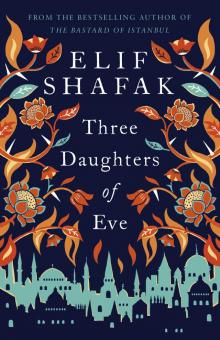 Three Daughters of Eve
Three Daughters of Eve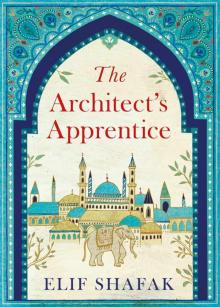 The Architect's Apprentice
The Architect's Apprentice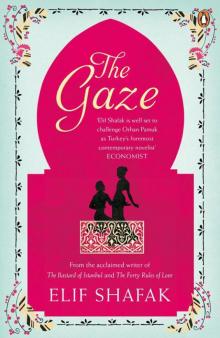 The Gaze
The Gaze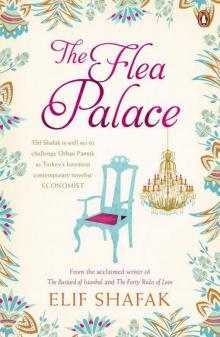 The Flea Palace
The Flea Palace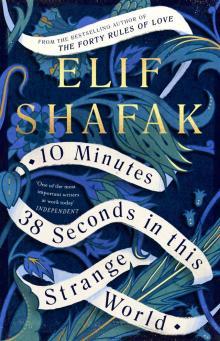 10 Minutes 38 Seconds in this Strange World
10 Minutes 38 Seconds in this Strange World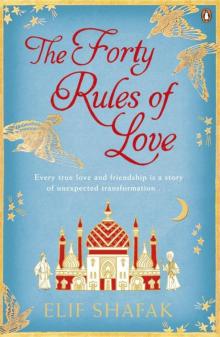 The Forty Rules of Love
The Forty Rules of Love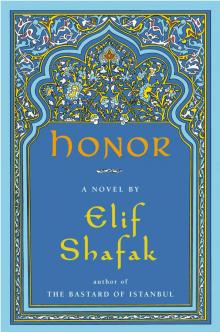 Honor
Honor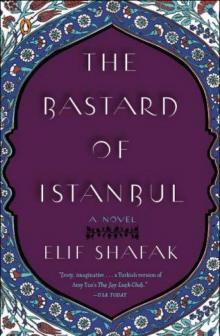 The Bastard of Istanbul
The Bastard of Istanbul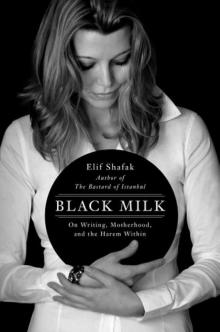 Black Milk
Black Milk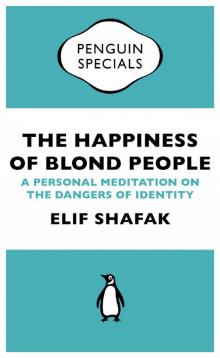 The Happiness of Blond People (Penguin Specials)
The Happiness of Blond People (Penguin Specials)